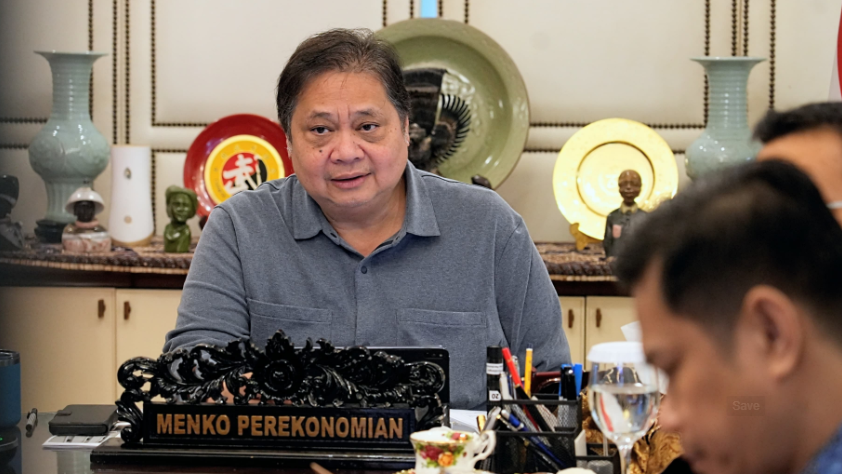Airlangga Hartarto: RI negotiates to offer Trump tariff solution

JAKARTA – The Indonesian government is formulating strategic steps in response to the reciprocal tariff policy implemented by the United States (US).
Through cross-ministry and agency coordination, as well as intensive communication with the United States Trade Representative (USTR), the U.S. Chamber of Commerce, and other trading partners, Indonesia has emphasized its preference for diplomacy over retaliation or countermeasures.
The reciprocal tariffs, effective April 9, 2025, target several imported products to the US. However, exemptions apply to specific categories, such as medical goods, humanitarian items, and strategic commodities like steel, aluminum, semiconductors, and energy and minerals unavailable in the US.
Instead of responding with similar actions, Indonesia has drafted a negotiation proposal focusing on tax relief for certain products, including Income Tax (PPh) and Value Added Tax (VAT). The proposal also includes plans to increase purchases of US-origin goods to reduce the current trade deficit of US$18 billion.
Airlangga Hartarto, Indonesia's Coordinating Minister for Economic Affairs, explained that Indonesia’s import tariffs on US products, such as wheat and soybeans, are already low, even at zero percent for some commodities.
Thus, Indonesia, according to Airlangga, will not offer tariff reductions as part of the negotiations but will adopt a more strategic and win-win solution-based approach.
The government also prioritizes protection for labor-intensive export-oriented industries, such as apparel and footwear, which are most vulnerable to tariff fluctuations and global market pressures. Various incentives and fiscal support are being prepared to ensure domestic industries remain competitive and sustainable.
A forum for outreach and gathering input from business players is scheduled for Monday (April 7). The government aims to ensure that industry stakeholders are part of the national strategic policy formulation process.
As part of a comprehensive response, the government is also pushing for accelerated international trade cooperation, particularly with the European Union, which is Indonesia’s second-largest market after China and the United States. This effort aims to reduce dependency on a single market and create new market opportunities for Indonesia’s top products.
“This can also be promoted, so we have larger alternative markets,” said Airlangga in an official statement quoted on Tuesday (April 8).
In a limited coordination meeting led by President Prabowo, the government reiterated that all policies will adhere to fiscal prudence principles, maintain state budget stability (APBN), and consider the long-term interests of Indonesia-US bilateral relations.
As of now, communication with USTR is still ongoing, and Indonesia’s final proposal is in the finalization stage before the official US deadline. (EF/KR/LM)